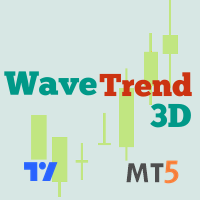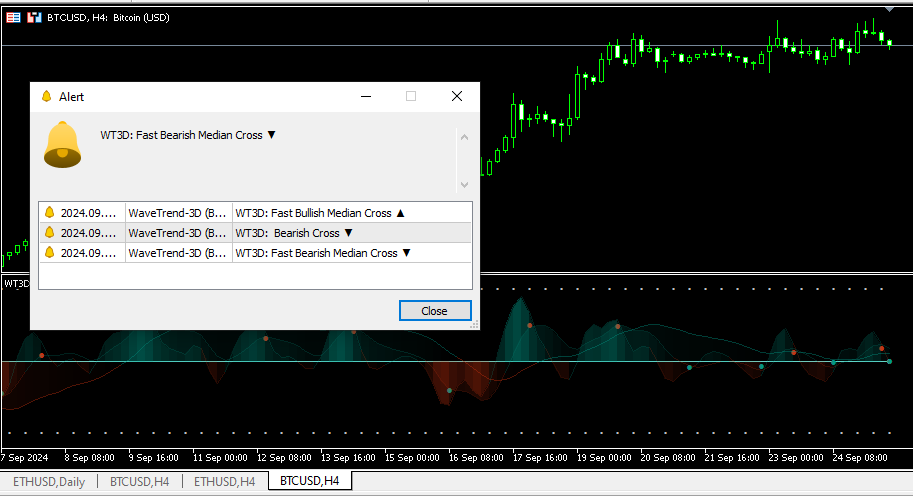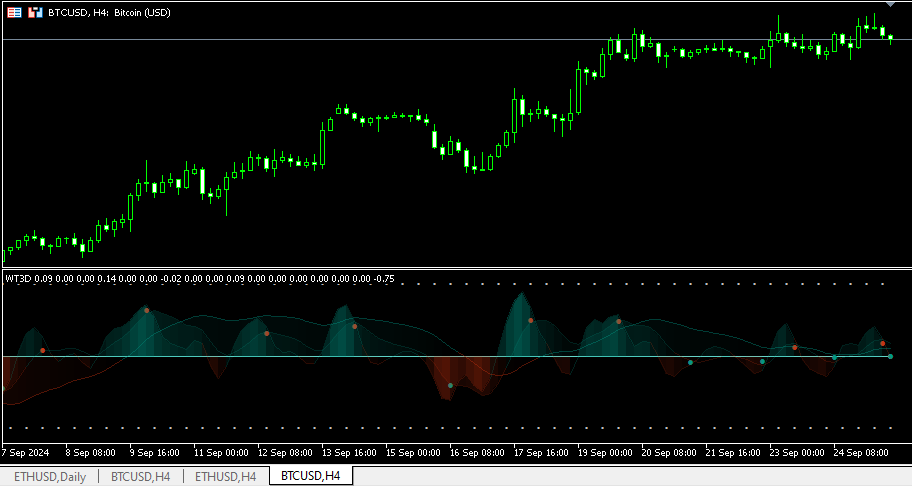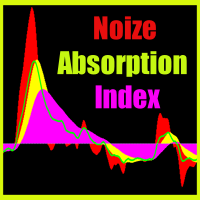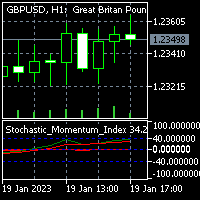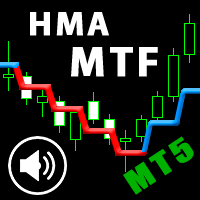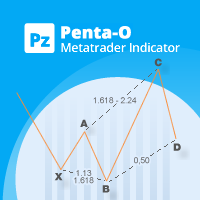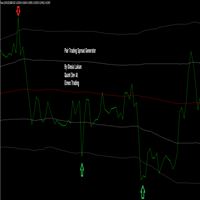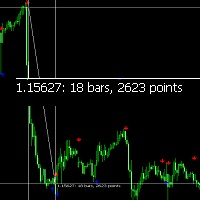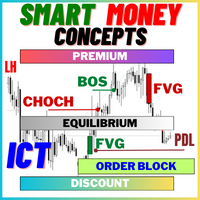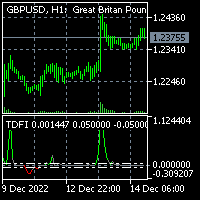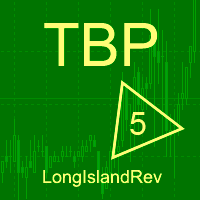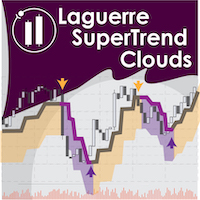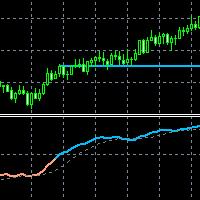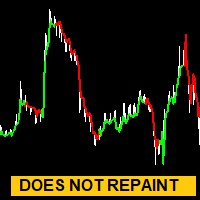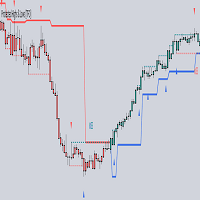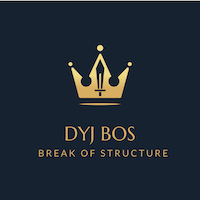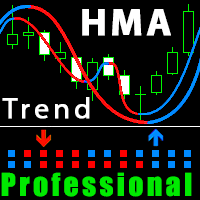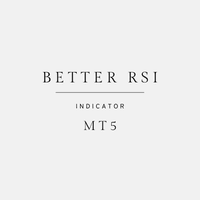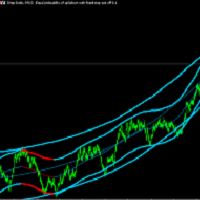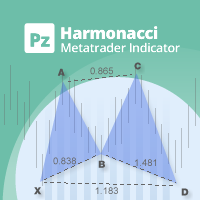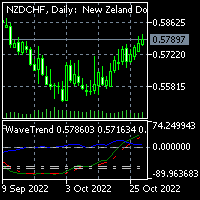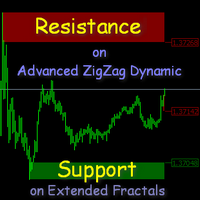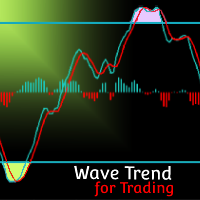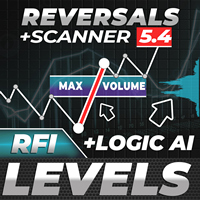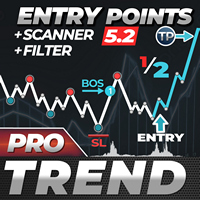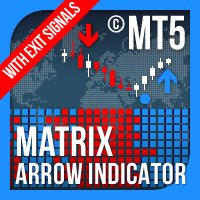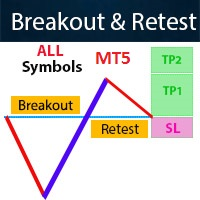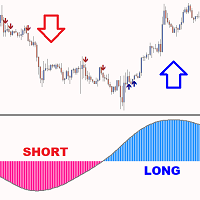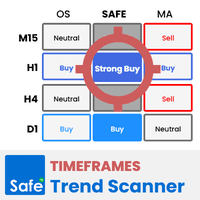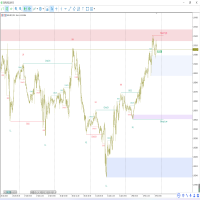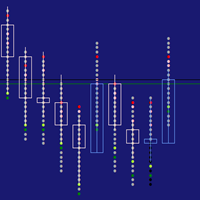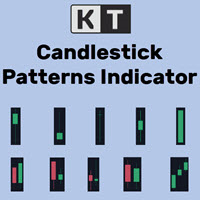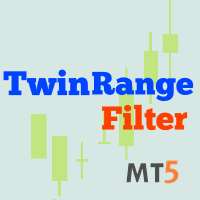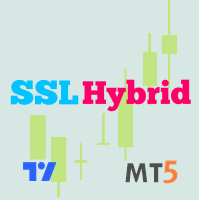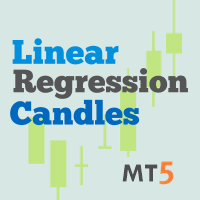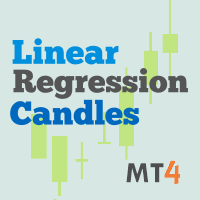WaveTrend 3D
- Indicadores
- Rashed Samir
- Versão: 1.1
- Atualizado: 25 setembro 2024
- Ativações: 8
WaveTrend 3D is the mql version of this oscillator (By jdehorty and LazyBear).
WaveTrend 3D (WT3D) is a novel implementation of the famous WaveTrend (WT) indicator and has been completely redesigned from the ground up to address some of the inherent shortcomings associated with the traditional WT algorithm.
WaveTrend 3D is an alternative implementation of WaveTrend that directly addresses some of the known shortcomings of the indicator, including its unbounded extremes, susceptibility to whipsaw, and lack of insight into other timeframes.
INPUTS:
- Source: The input series. Usually, it is the close or average price, but it can be any series.
- Use Mirror: Whether to display a mirror image of the source series; for visualizing the series as a 3D waveform similar to a soundwave.
- Use EMA: Whether to use an exponential moving average of the input series.
- EMA Length: The length of the exponential moving average.
- Use COG: Whether to use the center of gravity of the input series.
- COG Length: The length of the center of gravity.
- Speed to Emphasize: The target speed to emphasize.
- Width: The width of the emphasized line.
- Display Kernel Moving Average: Whether to display the kernel moving average of the signal. Like PCA, an unsupervised Machine Learning technique whereby neighboring vectors are projected onto the Principal Component.
- Display Kernel Signal: Whether to display the kernel estimator for the emphasized line. Like the Kernel MA, it can show underlying shifts in bias within a more significant trend by the colors reflected on the ribbon itself.
- Show Oscillator Lines: Whether to show the oscillator lines.
- Offset: The offset of the emphasized oscillator plots.
- Fast Length: The length scale factor for the fast oscillator.
- Fast Smoothing: The smoothing scale factor for the fast oscillator.
- Normal Length: The length scale factor for the normal oscillator.
- Normal Smoothing: The smoothing scale factor for the normal frequency.
- Slow Length: The length scale factor for the slow oscillator.
- Slow Smoothing: The smoothing scale factor for the slow frequency.
- Divergence Threshold: The number of bars for the divergence to be considered significant.
- Trigger Wave Percent Size: How big the current wave should be relative to the previous wave.
- Background Area Transparency Factor: Transparency factor for the background area.
- Foreground Area Transparency Factor: Transparency factor for the foreground area.
- Background Line Transparency Factor: Transparency factor for the background line.
- Foreground Line Transparency Factor: Transparency factor for the foreground line.
- Custom Transparency: Transparency of the custom colors.
- Total Gradient Steps: The maximum amount of steps supported for a gradient calculation is 256.
- Fast Bullish Color: The color of the fast bullish line.
- Normal Bullish Color: The color of the normal bullish line.
- Slow Bullish Color: The color of the slow bullish line.
- Fast Bearish Color: The color of the fast bearish line.
- Normal Bearish Color: The color of the normal bearish line.
- Slow Bearish Color: The color of the slow bearish line.
- Bullish Divergence Signals: The color of the bullish divergence signals.
- Bearish Divergence Signals: The color of the bearish divergence signals.
